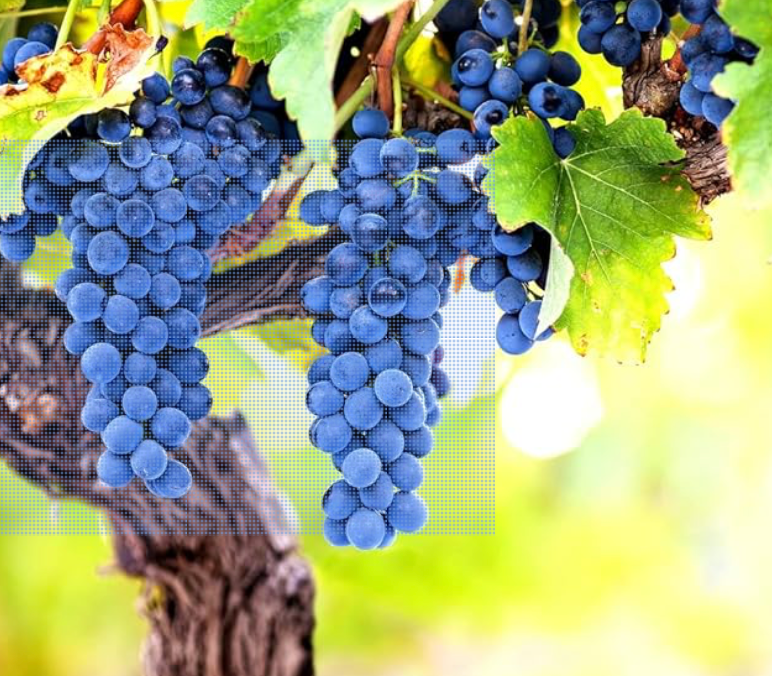Taking the Right Amount of Resveatrol Matters
September 9, 2024 – Steve Bruner


Your Brain: Understanding the Resveratrol Balance for Optimal Health
In recent years, resveratrol has gained a reputation for being a powerful antioxidant with potential benefits for heart health, brain function, and even longevity. However, a recent study has shed light on the potential risks of consuming too much resveratrol, particularly when it comes to brain health.
The Natural Biology Model of Formulating
For over two decades, Natural Biology has been at the forefront of crafting supplements with integrity, driven by research—not speculation or hype. In a world where many supplements are overhyped and overprocessed, we stand firm in our commitment to balanced potency and natural purity. Our formulas are not just about maximum strength; they are about delivering the right strength—based on science—to nourish your body and mind without overwhelming it.
We believe that true wellness comes from nature’s wisdom, and our products reflect that belief. Sourced from the purest ingredients like French Red Wine Grapes from the Rhône Valley, our Vintage Resveratrol offers a carefully balanced dose of antioxidants, including trans-resveratrol, designed to be absorbed efficiently by your body for optimal benefits. Unlike many overhyped supplements that pack in excessive amounts of ingredients, we respect the balance nature intended, ensuring that each formula works in harmony with your body.
At Natural Biology, we don’t chase trends. We follow the research, carefully crafting each product to support your health the way nature designed. Since 2002, we’ve been dedicated to helping you live well, naturally—by bringing you supplements that are as pure, effective, and balanced as the life you strive to lead.
Discover the difference that balance makes. Trust Natural Biology for your journey to wellness.
The Right Amount
Take two capsules of Vintage Resveratrol 100% daily, anytime of the day, on a full or empty stomach. This delivers 1000mg of French Red Wine Extract yield 12% or 120mg of active trans-resveratrol. One capsule delivering 60mg of trans resveatrol is the minimum and 4 capsules delivering 240mg is the maximum anyone should take. How to calculate: Take the total extract amount and multiple by 12% to caculate the active trans-resveratrol. This method only works with our ingredients.
Note: Most supplements with resveratrol are sourced from Japanese knot root, technically called polygonum cuspidatum. Natural Biology has studied polygonum cuspidatum since 2008. It is highly over-processed and has a total material bioavailability rate of 8% whereas Vintage Resveratrol 100% has a 92% rate of active transresveratrol bioavailability and it is not over-processed with excessive chemical residues but pure.
Research Doses Are Essential for Optimum Health Benefits
The research confirms that while resveratrol can be beneficial in moderate doses, high levels may actually harm the brain by inhibiting glutamate uptake—a crucial process for proper brain function. Glutamate is a neurotransmitter essential for memory, learning, and overall cognitive performance. When its uptake is blocked or slowed, it can lead to problems in these areas, even contributing to neurodegenerative conditions.
This finding aligns with what Natural Biology has been promoting since 2008: not all resveratrol supplements are created equal, and more isn’t always better. The purest form of resveratrol comes from the French Red Wine Grapes of the Rhône Valley, which offer 5-12% active trans-resveratrol along with the entire spectrum of antioxidants found in the grape. This natural form provides a balanced and highly absorbable source of resveratrol without overwhelming your system.
In contrast, many overprocessed supplements made from polygonum cuspidatum (Japanese knotweed) flood the body with excessive amounts of trans-resveratrol. This concentrated dose may not have been adequately studied for long-term effects, especially when it comes to brain health. The study’s findings raise concerns about the potential dangers of taking too much resveratrol from these sources, particularly without understanding how it interacts with the brain’s delicate chemistry over time.
Natural Biology’s Vintage Resveratrol, sourced from whole French Red Wine Grapes, avoids this problem by delivering a more natural, holistic approach. The combination of antioxidants found in the grape ensures that your body receives not only the trans-resveratrol but also a variety of other beneficial compounds that work in harmony. This whole-food approach to supplementation ensures better absorption and a lower risk of side effects compared to highly concentrated forms.
The key takeaway? Balance is crucial. While resveratrol can provide significant health benefits, it’s essential to choose a source that respects the natural balance of the compounds and doesn’t overload your system. By opting for products like Vintage Resveratrol, which are rooted in nature and carefully crafted for optimal absorption, you can enjoy the benefits of resveratrol without the risks associated with excessive intake.
In conclusion, the study confirms what we’ve long believed: more is not always better, especially when it comes to supplements. Opt for natural, balanced sources of resveratrol like those found in French Red Wine Grapes, and trust in the power of nature to deliver health benefits safely and effectively. Your brain will thank you.
Resveratrol Study Data
Resveratrol (3,4',5-trihydroxy-trans-stilbene), a phyto- alexin found mainly in grapes and mulberries, is a promising natural antioxidative, anti-inXammatory and estrogenic prod- uct [1–3]. Many investigations have sought to understand the molecular mechanisms of resveratrol and its diverse biological eVects, particularly its cancer chemopreventive [3], cardio-pro- tective [4–6] and neuroprotective activities [7]. Brain tissue is particularly vulnerable to oxidative dam- age, possibly due to its high consumption of oxygen and the consequent generation of high quantities of reactive oxygen species (ROS) 1 during oxidative phosphorylation [8]. More- over, several enzymes expressed in brain, including mono- amine oxidase and tyrosine hydroxylase, lead to hydrogen peroxide formation as a normal by-product of their activ- ity. Several regions of the brain are particularly rich in iron, which promotes the production of damaging oxygen-free radical species.